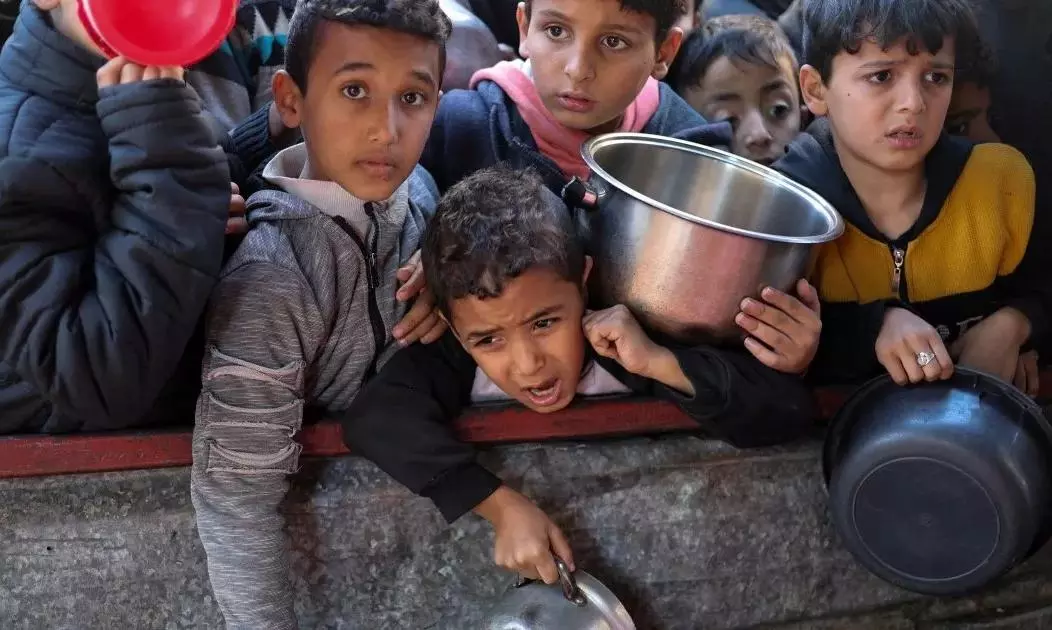
Yet another Israeli strike kills 38 Gazans with hands outstretched for food
text_fieldsThe call for restraint in killing starving people seeking food for their hungry families, even in a US and Israeli-controlled facility—a controversial centre that had already claimed hundreds of Gazan lives as they queued up for food—in Gaza’s Rafah, fell on deaf ears, leading to the deaths of at least 38 Palestinians in Israel’s targeted bombardment amid escalating tensions with Iran.
According to Al Jazeera, at least 56 Palestinians have been killed across Gaza since dawn on Monday, including 38 people who were attempting to collect aid for their families at distribution centres operated by the Gaza Humanitarian Foundation (GHF), which has been widely criticised for functioning in Israeli-controlled zones described by some as highly dangerous for civilians.
The death toll near the distribution centres has now surpassed 300, while more than 2,000 have reportedly been wounded since the GHF began its operations in Gaza. These aid centres have frequently been the site of gunfire and chaos, particularly at locations such as the Flag Roundabout near the GHF centre in Rafah, which has repeatedly witnessed deadly violence. Additional casualties were reported in northern Gaza and Gaza City, where at least five more aid seekers lost their lives during similar incidents.
The United Nations human rights chief has strongly condemned Israel’s conduct in Gaza, where the war continues unabated and has now entered its twentieth month. Israel is simultaneously exchanging missile fire with Iran, further escalating regional tensions, while its military operations in Gaza have killed over 55,000 people, including thousands of children, according to local health officials.
In his address to the UN Human Rights Council in Geneva, the UN rights chief criticised Israel’s tactics, stating that they have caused severe and disproportionate suffering for civilians in the besieged territory. He further expressed alarm over the humanitarian conditions in Gaza, where Israel has been accused of using food as a weapon and blocking access to essential aid, despite briefly easing a total blockade in late May to allow limited GHF operations.
Since its establishment, the GHF has struggled to gain credibility, as both the United Nations and leading humanitarian agencies have declined to support it, citing concerns that it operates in alignment with Israeli military objectives and disregards established aid organisations with long-standing experience.
These concerns have intensified following multiple incidents of gunfire at GHF distribution sites, which led to the temporary suspension of its operations in Rafah and the Netzarim Corridor earlier this month.


















